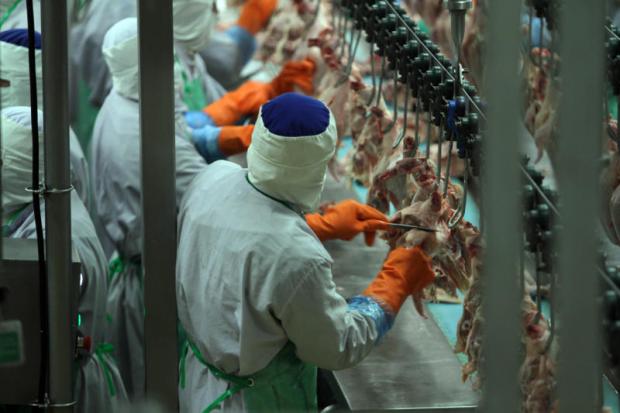
Promises to hike the daily minimum wage will incentivise investors to relocate production bases to offset the higher wage burden, with financially strained small companies among those to be hit hardest, say business executives.
"We will have to follow government regulation [on the daily minimum wage], but generally speaking investors will relocate their production bases because neighbouring countries have lower labour costs and acceptable skilled workers," said Sooksunt Jiumjaiswanglerg, chief executive of agro-industrial business and co-president at Charoen Pokphand Foods Plc.
If the daily minimum wage continues to increase, artificial intelligence will replace some of the work once done by the human workforce to offset the higher wage burden, he said.
Although raising the daily minimum wage can be done easily, hiking the prices of goods by 5-10% is an uphill task because several negotiations have to be made, Mr Sooksunt said.
Still, CPF has no issue if the next government decides to hike the minimum wage, he said.
Michinobu Sugata, president of Toyota Motor Thailand, said it's too early to project any negative impact from a daily minimum wage hike proposed by several political parties during the run-up to Sunday's election.
"We have to wait for the election results and see the actual plan on labour wage issues to forecast and consider any adverse factors for Toyota's manufacturing operations in Thailand," Mr Sugata said.
The promises made by the parties are merely assumed figures to campaign on, he said.
The pro-junta Palang Pracharath Party has vowed to raise the daily minimum wage to 400-425 baht, while the Pheu Thai Party has pledged to hike wages to 400 baht a day.
Similarly, the Democrat Party has campaigned on a minimum guaranteed salary of 120,000 baht a year, equivalent to 329 baht a day. The highest daily minimum wage is proposed by the Commoners Party, at 500 baht.
The current daily minimum wage has seven rates: 308, 310, 315, 318, 320, 325 and 330 baht. The average minimum wage is 315.97 baht.
Chon Buri, Rayong and Phuket have the highest rate, while Narathiwat, Pattani and Yala have the lowest.
The last nationwide increase was in January 2013, when a base rate of 300 baht was adopted by the Yingluck Shinawatra government.
Trade unions are normally proponents of the hike amid demand for a fairer wage for low-income earners, but employers have repeatedly voiced opposition on grounds that a wage hike would derail their businesses through higher costs and cause foreign investors to relocate production bases.
Yeap Swee Chuan, president and chief executive of auto parts maker Aapico Hitech Plc, said a wage hike would hit small and medium-sized enterprises harder than big corporates and affect parts makers more than assemblers because the former employ a greater number of workers and use sophisticated technology.